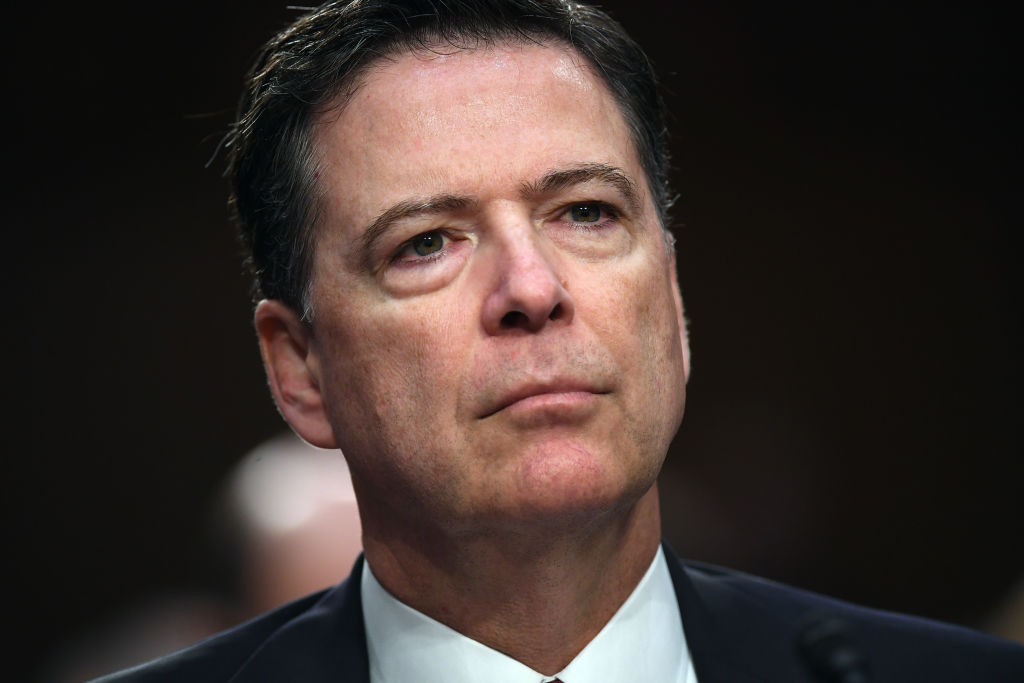Seven things to watch in Christopher Wray's Senate confirmation hearing
Christopher Wray, President Trump's pick to replace fired FBI Director James Comey, is set to testify in his confirmation hearing before the Senate Judiciary Committee Wednesday morning, amid intensifying White House scrutiny over any collusion between Mr. Trump's campaign and Russia.
Senators on both sides of the aisle are bound to have a plethora of questions for the FBI director-designate, as he takes over for the man who was in charge of the FBI's investigation into Russian election meddling and any ties between Russia and the Trump campaign. Wray's testimony comes one day after Donald Trump Jr. released emails from last year arranging a meeting with a Russian lawyer to discuss what was to be "high level and sensitive information" that was allegedly a "part of Russia and its government's support for Mr. Trump" during the presidential campaign. Comey testified before the Senate Intelligence Committee last month that he believed Mr. Trump fired him because of the Russia investigation.
Mr. Trump announced his intent to nominate Wray in a June 7 tweet, but officially nominated him at the end of last month. Wray said he was "honored and humbled" by the nomination. Wray, a Yale Law School graduate, was the Assistant Attorney General in charge of the Department of Justice's Criminal Division from 2003 to 2005. He is currently a partner at the King & Spalding, where he has worked for 12 years and chairs the law firm's Special Matters and Government Investigations Practice Group. Wray has handled high-profile cases, including representing New Jersey Gov. Chris Christie in the Bridgegate scandal.
If confirmed, Wray would serve a 10-year term until 2027.
Here are six things to watch during Wednesday's 9:30 a.m. confirmation hearing:
How Wray says he will approach the Russia investigation
Officially, the person in charge of the bureau's investigation into Russian election meddling and any ties to the Trump campaign is Special Counsel Robert Mueller, himself a former FBI director. But if confirmed, Wray will still be the head of the bureau responsible for the investigation. How does he intend to protect the probe's integrity?
Wray also has questions to answer about his own interactions with Russian-connected entities. His law firm has represented two of Russia's largest state-controlled oil companies, Rosneft and Gazprom. Democrats are likely to mention that.
Do Republicans ask tough questions?
Members of the party opposite to the president's tend to ask tougher questions of the nominee, as a general rule of thumb in the Senate. But, particularly after Trump Jr.'s Tuesday email release, pressure is building for Republicans to scrutinize the president and his decisions. That includes pressure to scrutinize the person the president has selected to replace Comey. The difficulty of Senate Republicans' questions could be a useful barometer indicating whether they will defend, deflect or dig into the White House's mounting political and legal troubles in the near future. The top Republican on the committee is Iowa Sen. Chuck Grassley.
Has Trump demanded loyalty or any other commitment from Wray?
Comey told the Senate Intelligence Committee that the president asked for his loyalty, a request critics deemed inappropriate. Did the president also ask for a similar commitment from Wray? If the president hasn't asked that question, but does in the future, how will Wray respond? It's a question Democrats in particular are likely to ask.
How does Wray plan to ensure independence from the White House?
As Comey testified, Mr. Trump asked him to drop the investigation into fired National Security Adviser Michael Flynn and for his loyalty. What steps does Wray intend to take to make sure there isn't any political influence from the White House or any other political entity in the FBI?
Why does Wray think he was picked for the job?
Wray wasn't on the original list of potential replacements. Attorney General Jeff Sessions and Deputy Attorney General Rod Rosenstein interviewed a number of other candidates first, and his selection took many in the intelligence community and political pundits by surprise.
Wray is also connected to both Comey and Mueller, men who could damage Mr. Trump's reputation and aren't exactly in the president's good graces. In 2004, Wray offered to team up with Comey, who was then the deputy attorney general, other DOJ officials and then-FBI Director Mueller in threatening to resign over concerns about George W. Bush's use of warrantless wiretapping. Why does Wray think the president wants someone who threatened to resign over perceived presidential misconduct, and someone who has ties to both Comey and Mueller?
Why does Wray say he wants this job?
Wray is leaving a lucrative law firm position to take a lower-paying job amid intense political scrutiny. Last year, he earned $9.2 million. Comey earned under $200,000 annually in base salary as FBI director. Plus, the president fired his last FBI director in a highly unusual move. Wray stands to take a very significant pay cut and will be subject to intense scrutiny and potential job instability as FBI director.
Any questions about Wray's financial interests and past business ties
During his years with King & Spalding, Wray provided legal services major companies including Chevron, Johnson & Johnson, SunTrust, according to disclosure forms he filed with the Office of Government Ethics. He also owns stock in companies like Coca Cola, Hewlett Packard and McDonalds. Democrats in particular are likely to ask how he intends to stay independent of any past business connections or current financial ties while in charge of an agency tasked with investigating major corporations.



